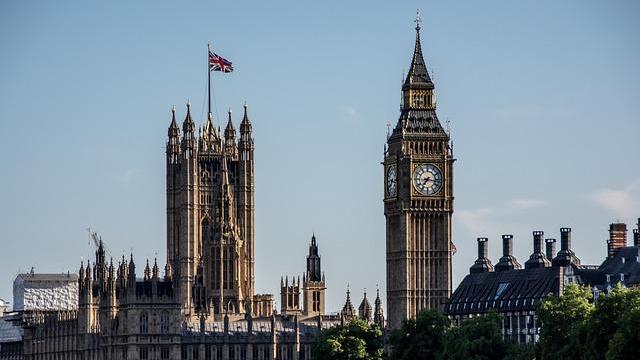Why life sciences companies need to engage with Labour now

Following Sir Keir Starmer’s national mission statement speech last week, pharmaphorum spoke with the leader of the opposition party’s former executive director of communications, Ben Nunn – now senior counsel at Lexington – in order to discuss just how the UK life sciences industry fits into Labour’s plan.
Reflecting on Starmer’s speech – the backbone of the Labour manifesto – as well as his written explanation in the New Statesman this week, also explored within both the article our discussions were the implications on the NHS.
Imagining the future economy
Broadly, Starmer wants five things: securing the highest sustained growth in the G7 group of rich nations (the UK, the US, and Canada, France, Germany, Italy, and Japan); making Britain a clean energy superpower; improving the NHS; reforming the justice system; and raising education standards. Within the mission statement, the life sciences in particular were called out.
“I think it comes from two reasons,” Nunn explained. “Firstly, is the recognition that the life sciences industry in the UK is a good news story. It has been a success story over recent years, and it also represents what our future economy should look like: high skills, high growth, innovations, global trade. I think that’s one of the reasons it’s used by not just Keir, but the shadow cabinet more generally as a constant example of what they mean by the future economy.”
“Secondly, and this is based on how many years I worked with Keir,” Nunn continued, “the pandemic in particular meant that people saw first-hand very clearly the impact of the life sciences industry. They saw in a way in which they’d never seen before and have had never been told before. They saw a virus come about and they watched as the vaccine was developed and they saw the first woman in the country receive it. I think it became such a seminal moment for the country watching that vaccine.”
And for politicians?
“It made them really recognise the value of the life sciences industry,” Nunn said. “Both as an economic driver, which I think for the last few years there has been a consensus on, but then also the opportunities that creates in terms of both the NHS and also future jobs and future skills.”
A relatable symbol of reinvigoration
Starmer claimed in his News Statesman piece that the UK “had lost its sense of ambition” and that the mission statement was about “getting our future back”: thus, the life sciences represent a relatable symbol of getting the future back and reinvigorating the economy.
“I think what the life sciences sector represents is, you've got some of the biggest companies in the world having significant footprints within the UK,” Nunn mused. “Or you have UK-born-and-bred companies having a significant impact on the world. Because of the global footprint some of these companies have, it means they are bringing global investment into the UK. They are creating innovations that start off in the UK, but [are] sold off to the rest of the world.”
As relates to Starmer’s mission statement, Nunn sees the life sciences as representing a model that needs protecting.
“There is a threat at the moment that we might lose our special place as a life sciences hub in the UK,” Nunn warned. “More broadly, I think he [Starmer] thinks, for the industries and the economies of the future […] we should know what the industries of the 2030s will be. They're probably only now just starting up. The idea is they should be here in the UK and then selling to the rest of the world. I think that's what he means by the future.”
The life sciences: Labour’s five-mission focal point
This, in turn, refers back to the first mission statement regarding the highest sustained growth within the G7 group of rich nations. Indeed, the life sciences are centralised as a focal point for all five mission points, providing a visualisable framework for what Starmer means. The question is, how can the life sciences industry engage with Labour now?
“First and foremost, it’s business critical now,” Nunn said. “You are planning for a change of administration in 18 months, two years’ time […] You have to earn the right to govern. You don’t deserve the right to govern, so Labour’s still got to earn the right to win the next election – but all the indicators are that, for the first time in 10 ten [years], 15 years, Labour is genuinely competitive in the next election.”
“Don’t think you can wait until one minute past 10 pm on polling day and go, ‘Actually, maybe we should take them serious’,” he added. “You’ve got to take them seriously now.”
It goes without saying that politicians, and opposition politicians in particular, give a lot of speeches (“lots and lots and lots of speeches,” as Nunn put it), but there has been much discussion that Starmer’s mission statement of last week was the most important since being elected Labour leader.
“I think it is the intellectual framework for how he wants to govern,” Nunn said. “A shadow minister told me this, but he [Starmer] invested a hell of a lot of time in that speech and the approach that he’s taken in that. It is a programme for government.”
Indeed, Starmer writes as much in the New Statesman, mentioning Italian-American economist Mariana Mazzucato, who describes “how mission-driven government can drive real change, shape new markets, make the state more entrepreneurial, build movements”. And it was a mission-driven government which resulted in the NHS.
“Labour has opened its doors to business, in a way,” Nunn continued. “Some would argue it hasn’t done in recent years. There’s a very clear invitation there to say, ‘Look, this is our ambition, these are our goals [and] you need to be a part of making this happen.’”
Taking the prevention perspective
But, again, the question of how the life sciences industry can do that remains.
“Johnny Reynolds, who's the shadow business spokesperson, published his industrial strategy last year,” Nunn said. “There is a clear set of goals there around increasing investment in research and development, trying to encourage more foreign investment in life sciences. What the industry has got to do is try and come up [with] what their own products are and what their own initiatives are that can help support those ambitions.”
Starmer’s third mission point concerns the NHS, and his New Statesman piece notes that each winter sees an NHS crisis, followed by “a quick fix, momentary relief, and then the next winter – the same thing. And repeat.”
“Having known him, he takes the prevention agenda incredibly seriously,” Nunn explained. “This comes from his time as director of public prosecution, when he sees saw it from the criminal justice perspective. He saw people entering the criminal justice system, either as reoffenders or as people who shouldn't ordinarily have ended up there. He came to the point of asking, ‘Hang on, this is costing us a lot of money as taxpayers, which could easily have been cheaper from miles down the road if we'd stopped this person going down that route or we'd helped that person once they were out of prison the first time’.”
The same applies to public health.
“He has a real interest in the prevention agenda,” Nunn reiterated. “He's going to flesh out more details on all of the missions, including the NHS one in the coming months [and] I wouldn't be surprised if prevention is a big part of that. He’s as serious as other politicians have been in recent years to try and answer the question of how the NHS can move away from being treatment-first to prevention -first. Because that's one of the big problems with the system. It's got lots of problems, and one of the problems at the moment is that it's still a 20th-century system built around a 21st-century economy.”
Transforming British government, nurturing British talent
Lastly, discussion turned to the necessity of nurturing homegrown British talent in order to enable the life sciences industry to enact the changes the mission statement envisages.
“I think I would look back to the pandemic as an illustrative example of that, particularly the work AstraZeneca did,” Nunn said. “We had British scientists helping to solve the world's problems.”
“Keir and Rachel [Reeves] have moved the party back to being a very patriotic party again,” he continued. “[Labour] wants to celebrate British talent on the world stage.”
“Again, I think it is the success stories of what British scientists and British companies and British whatevers have done here and how that's celebrated abroad [that] are the most compelling stories to find,” Nunn added.
“You've got to treat the change that could come in politically as a business-critical issue now. The last thing you should do is wait until polls are closed to start taking Labour seriously again,” Nunn concluded.
Image by Ana Gic, sourced from Pixabay.













